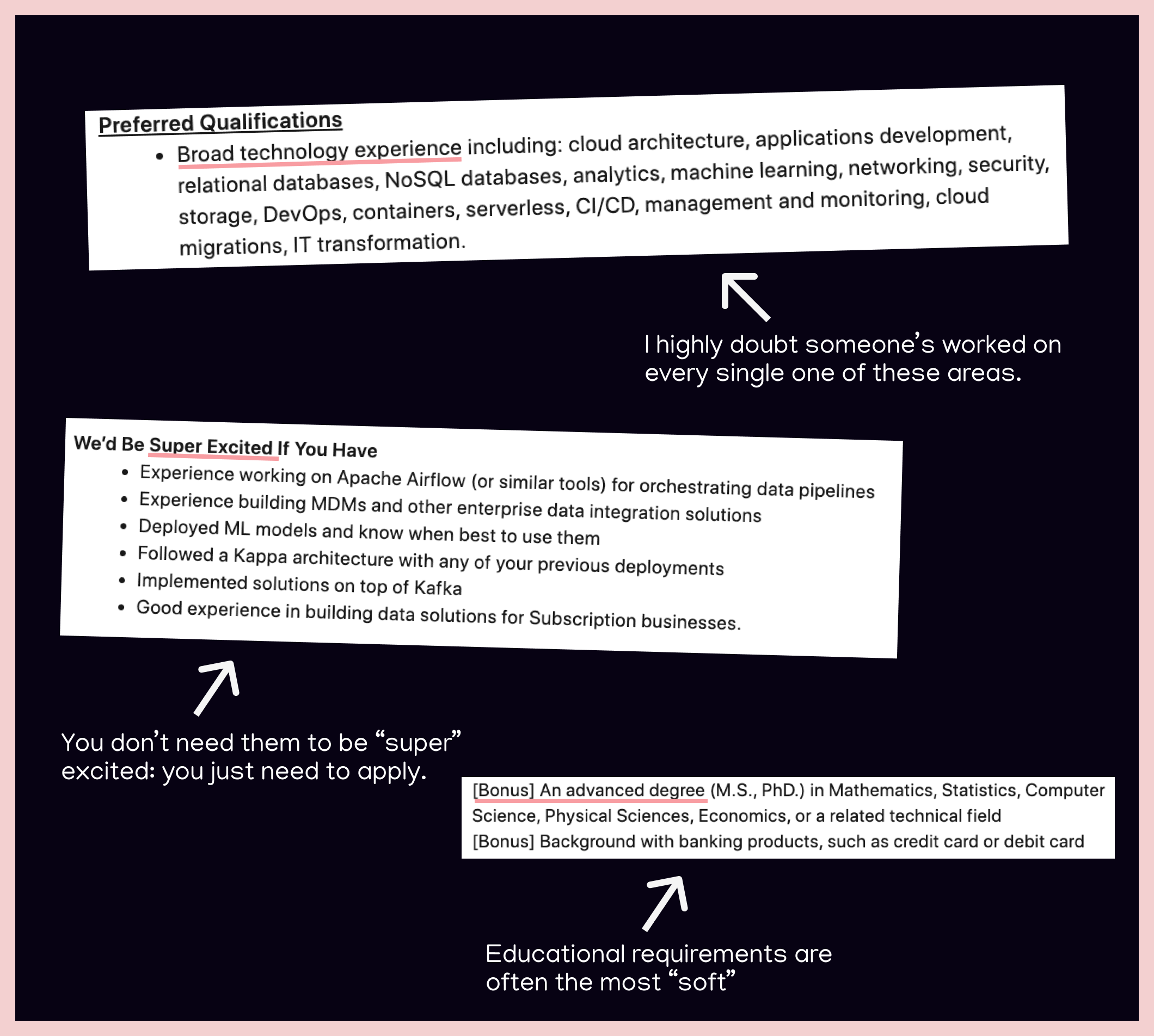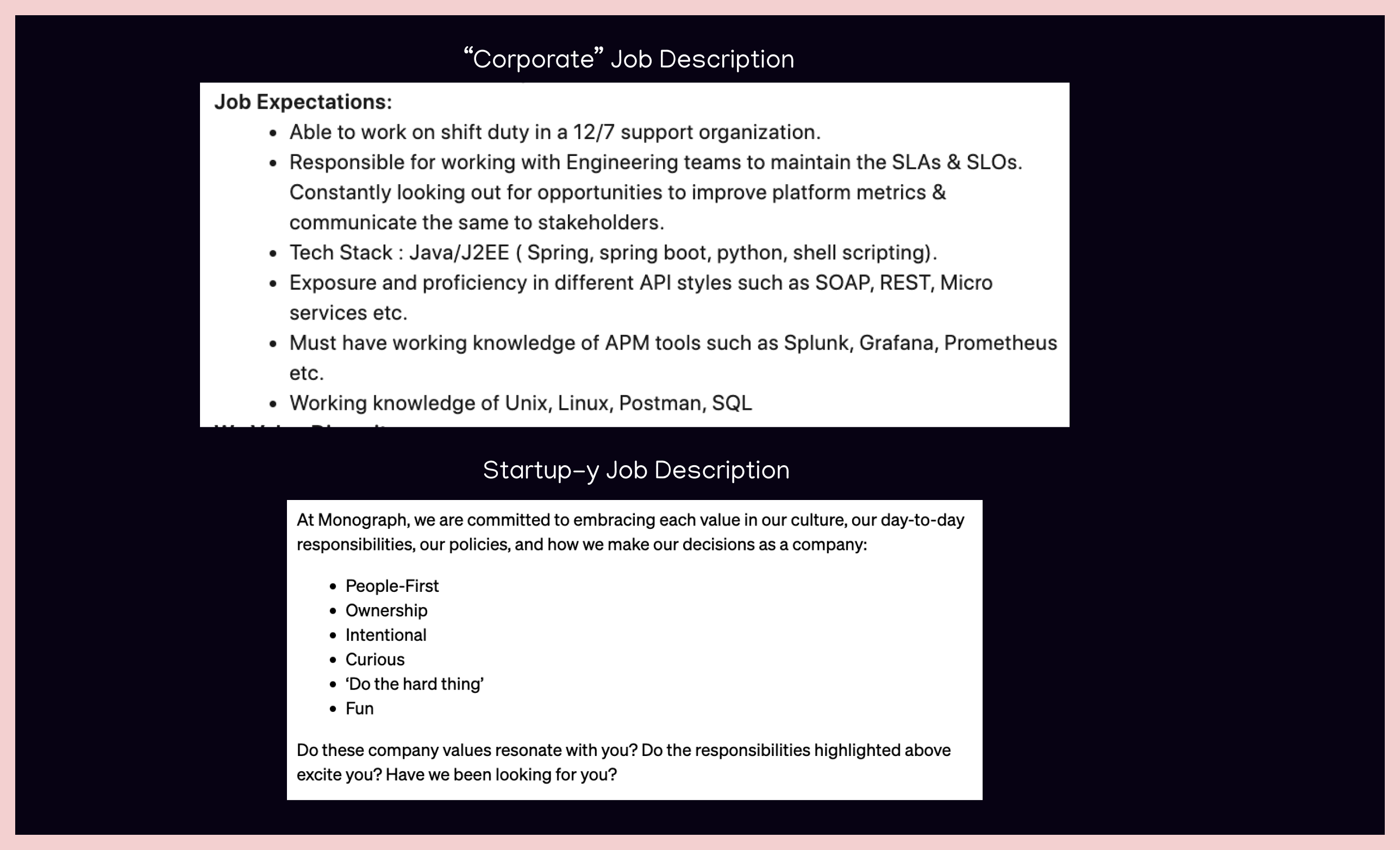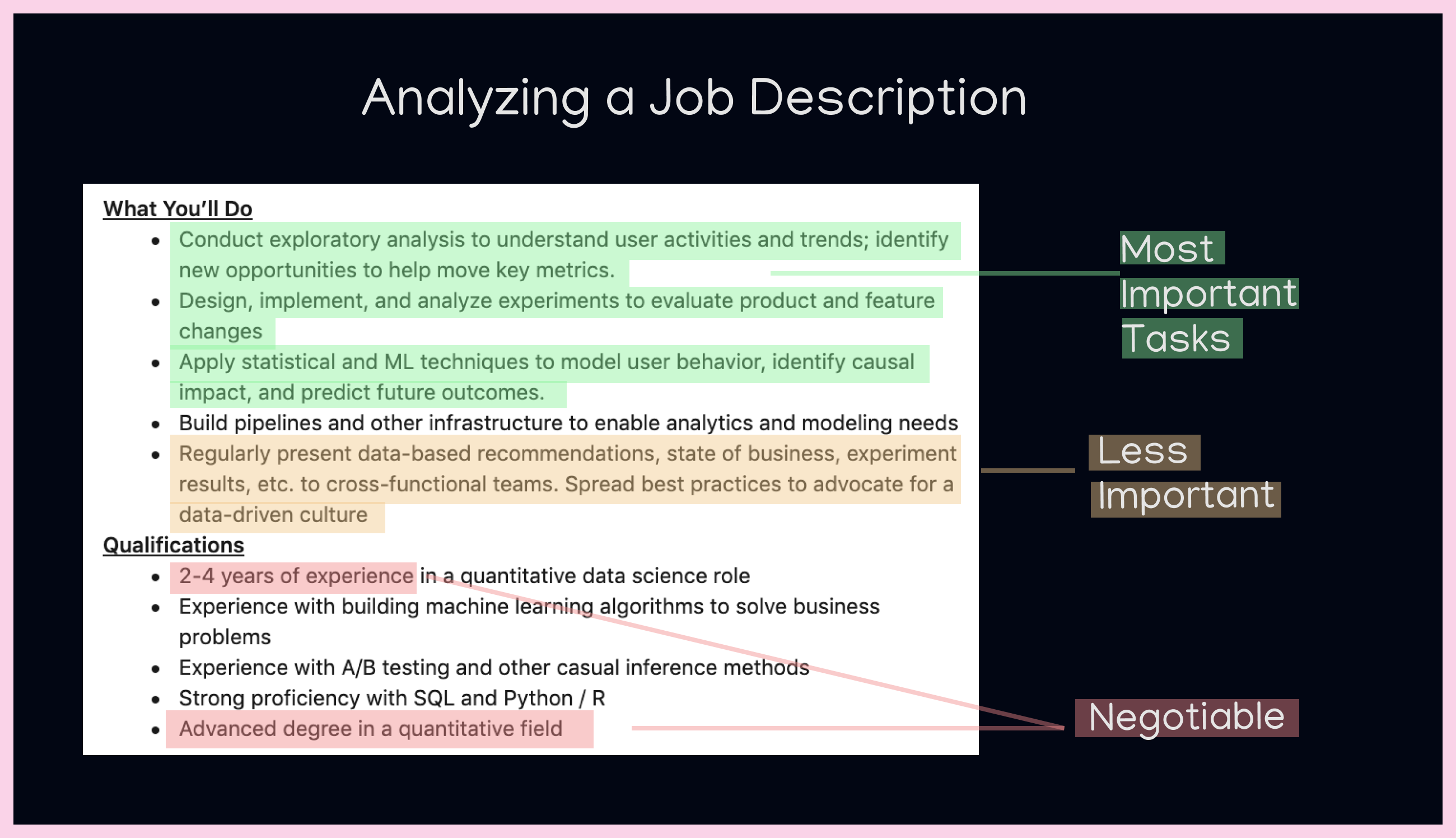At least once every few days, I hear someone rant about how unrealistic job descriptions are.
These range from the Entry-Level-Job_TM that requires 5+ years of experience to the 7 years of experience required for a programming language created only 18 months ago.
And sure, there’s plenty of job postings out there that suck. But there’s more to the story.
The majority of people don’t know how to read a job description properly. And in my experience, they drastically underestimate the number of jobs they’re qualified for.
You miss 100% of the shots you don’t take and today I want to help you shoot better.
The modern day job description is written with the primary purpose of Search Engine Optimization (SEO). This means that it’s going to contain a bunch of fluff that isn’t actually relevant to the position at all.
You know how some people fill their LinkedIn profile with popular buzzwords in hopes that some recruiter will be searching for that term? Well, recruiters do the same thing with job descriptions.
Practically, this means that a position which only requires you to know Python might also include Ruby as a complementary skill, or a Product Management role might have SQL as a “nice to have”.
Some examples:

Pro Tip: If you’re still skeptical about meeting job requirements, go to the Linkedn profile of current individuals working that role at the company. You’ll probably convince yourself that you have the skills needed to apply.
Spoiler Alert: the ideal candidate doesn’t really exist.
Most hiring managers are trying to construct a team that contains a wide range of people with different strengths and weaknesses, as well as levels of experience.
For example, take my current role: I work as a Solutions Engineer which requires both a technical skill set as well as client facing and communication skills. My team is equal parts filled with people who have strong developer backgrounds, as well as people like me who come from an Account Management background.
Naturally, the same job description won’t really speak to both sets of people equally. Maybe it’ll make you think you don’t have the technical skills needed for such a role or maybe you’ll think that you don’t have the client facing experience needed.

But when you realize that you’re not really trying to have “everything”, and instead that hiring managers build teams of all sorts of people, you can go ahead and click apply.
The style in which the job description is written can often tell you quite a bit about the company.
Take for example the following two job descriptions:

From the first you can probably infer that there’s likely a ton of internal documentation around career advancement and promotions. There may be policies around employee side projects, what you can wear to work, etc.
The second job description though is much more value oriented and likely comes from a much smaller company. Know what you’re looking for and where to find it in job descriptions.
Pro Tip: This isn’t always true though! The company I currently work for is much larger than the company I used to work for, and yet it feels much more “startup-y” and value oriented. This is something they made abundantly clear during the interview process though and something I was looking for too.
The two biggest clues to what’s important to the hiring manager in a job description will be via repetition and the order of information.
If it keeps coming up, it’s likely an important part of the role. Jotting these keywords down and then reusing them in your cover letter or even just mentioning them during the interview is a great way to stand out.
The order of information is also important because it can help you prioritize which keywords to focus on: anything that’s in the first or second bullet point should be prioritized.

If you’re actively job hunting, I encourage you to not pay too much attention to your “conversion rate” or the amount of times you hear back from job applications.
Those things are out of your control and you’re much better off focusing on setting goals around for example the number of job applications sent or the number of emails you’ve sent to recruiters.
Remember: you only really need one of these applications to work out.
Cheers,
Shikhar
Some people call it a newsletter - I call it a good time. I write about tech careers and how you can get ahead in yours. It’s my best content (like this case study) delivered to you once a week.